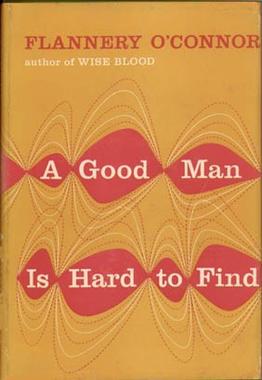Books in Brief: "A Good Man is Hard to Find" by Flannery O'Connor
/THE TITLE: A Good Man is Hard to Find and Other Stories (1955)
THE AUTHOR: Flannery O’Connor was an American writer and essayist from Georgia, whose short stories are considered pioneering and singular in the American literary canon. In her short life, she released two novels and three short story collections. Her Complete Stories won the 1972 U.S. National Book Award for Fiction.
THE BRIEF: Each of the ten stories in this seminal collection are captivating and unnerving, crammed with tales of religion, morality, and death. The collection blends the gothic literary tradition with the setting of the American South, creating provocative vignettes designed to incite a double-take in her readers.
THE FIRST PAGE: “‘Now look here, Bailey,’ she said, ‘see here, read this,’ and she stood with one hand on her thin hip and the other rattling the newspaper at his bald head. ‘Here this fellow that calls himself The Misfit is aloose from the Federal Pen and headed toward Florida and you read here what it says he did to these people. Just you read it.’”
THE CRITICS:
The New York Times Book Review: "In these stories the rural South is, for the first time, viewed by a writer whose orthodoxy matches her talent. The results are revolutionary."
The Guardian: “Her stories are baldly dramatic, and the Georgia she creates on the page – as individual a landscape as any in fiction – is summoned with few, very bold strokes. The sun is "a huge red ball … drenched in blood", a "furious white blister", a "white hole like an opening for the wind to escape through in a sky a little darker than itself". The "fat yellow moon" is seen in the branches of a fig tree "as if it were going to roost there with the chickens". O'Connor so loads her brush with pathetic fallacy that her landscape is alive, the scene nearly always hemmed in by lines of watching trees or woods that gape "like a dark open mouth"...O'Connor's ability to create characters and situations that resonate as powerfully as they do results in meanings that, as she herself acknowledged, ramify beyond authorial intention."

